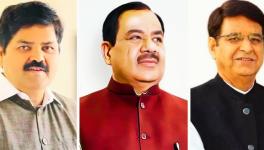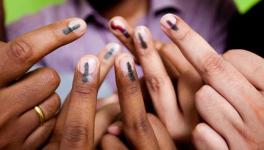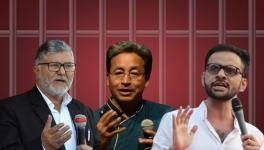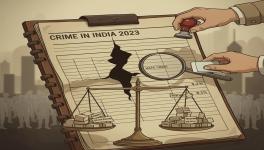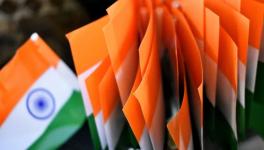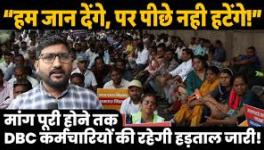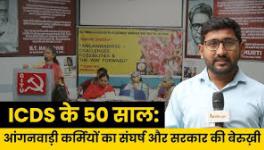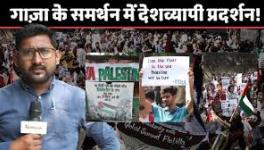Activists Arrests: We Don’t Want Police Telling Us That We Are Wrong, Says SC
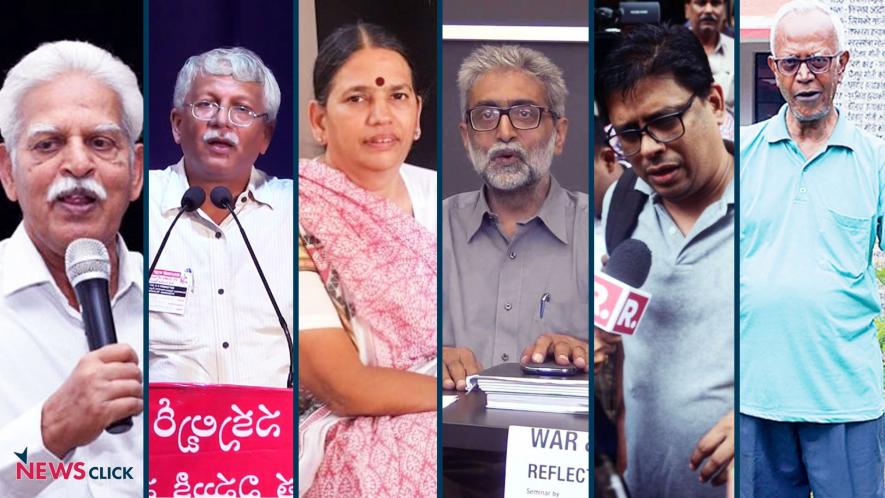
The Supreme Court, on September 6, pulled the Maharashtra police for casting aspersions on the top court, which is hearing the case of nationwide arrest of noted activists and lawyers in connection with the violence in Bhima-Koregaon. The bench, constituting Chief Justice Dipak Misra, Justice D.Y. Chandrachud and Justice A. M. Khanwilkar, extended the house arrest of five activists – Gautam Navlakha, Advocate Sudha Bhardwaj, Arun Ferreira Vernon Gonzalves and Varavara Rao – till September 12.
Additional Director General of Police (law and order) Parambir Singh had addressed a press conference in Mumbai on August 31 and claimed that the activists, arrested as part of the Pune police’s investigation into the Elgar Parishad event that allegedly led to the violence in Bhima-Koregaon in January 2018, were part of the “overground” cadre of the banned Communist Party of India (Maoist).
He was accompanied by Pune’s Swargate Division ACP Dr. Shivaji Panditrao Pawar who reportedly told journalists that the Supreme Court must not intervene.
Justice Chandrachud angrily asked Additional Solicitor General (ASG) Tushar Mehta to tell the police to be responsible. “Please ask your police to be responsible. We do not want the police telling us that we are wrong. The police has no business ruining the reputation of people or casting aspersions on the court,” he said criticising the police for going to the media on a sub judice matter.
The ASG offered apology on behalf of the police.
Mehta began his arguments by questioning the locus standi of the petitioners – historian Romila Thapar, Devaki Jain, Prabhat Patnaik, Satish Deshpande, Maja Daruwala – in filing a public interest litigation (PIL) over the arrests of the activists.
“The criminal proceedings are exclusively between the accused and the prosecution. A third party would have no say. It is a settled proposition of law and there are several judgments on this part. Persons who are accused of serious offenses are being investigated by the competent authorities. If you go through our affidavit, then you will realise how serious the matter is. In cases of this nature, no one else can apply for bail for someone else as PIL. It is a criminal case pending in another court. Such interference may prejudice the case against both accused and prosecution. The accused have approached other courts. Let them come to this court. Others have come here. This is setting a wrong precedent. First decide the issue if someone else can approach the court for stay of arrest and bail. The petitioners, who are complete strangers, have moved the apex court saying that the accused are not such people (who) could commit the alleged act,” he said.
He was backed by Advocate Harish Salve who is appearing on behalf of the complainant before the magistrate. “It is a criminal case. Let the state look into it. Right to dissent is extremely important. But here you have different kind of involvement,” he said.
Objecting to the arguments put forward, senior lawyer Abhishek Manu Singhvi said, “The government is distorting my case. I am not seeking bail of anybody. I am asking for an independent investigation and interim protection during the investigation.”
Justice Chandrachud noted that the activists, who were placed under house arrest by the Supreme Court last week, have filed a supplementary affidavit seeking impleadment in the proceedings before the court.
Advocate Prashant Bhushan said that the affidavit was filed yesterday (September 5) with the handwritten statements of the four. To which the ASG replied, “The locus or the lack of locus of the individual petitioners would not be wiped away by this support of the accused now. The accused have already taken available remedies. I will show to the judicial conscience that such reception of innocence could cause serious harm in the future. Suppose, tomorrow, a class of persons is arrested for a criminal offence who have taken remedies elsewhere, while others come and pray that the arrest be stayed and that the investigative agencies be directed to not proceed with the probe.”
He cited a 2006 judgment of the Supreme Court in Rajiv Ranjan Singh Vs Union of India where it was observed that unnecessary interference by individuals who are absolutely strangers as regards pending criminal matters may cause damage to the prosecution case and, at times, serious prejudice to the accused also.
Advocate Harish Salve argued, “There is no arrest without grounds. Once the state comes in, it shows the presence of a criminal element. The state will show that they have acted on the investigation in their wisdom.”
Chief Justice Misra intervened and asked, “Can, in criminal investigation, a third party intervene?”
Singhvi replied, “There is no third party now. The law that has been cited is on a non-existing foundation fact. The proxy that Mr. Mehta has alleged has now been taken care of.”
The CJI then inquired, “The question will be how far the court can go on an (Article) 32 petition. Eventually, your prayer is for the quashing of the FIR?”
To this, Singhvi replied, “No, we are seeking an independent inquiry by an independent body and, in the interim, protection. The inquiry may be either by a sitting or retired judge under Your Lordships’ monitoring. They cannot say that the matter may not even be considered by Your Lordships because the magistrate is there.”
Adding that protection by way of house arrest is a danger to the investigation, as the accused can indulge in several activities from within the confines of their homes, the ASG said, “I am putting one caveat. On the coming Wednesday, I have to personally see the evidence, the evidence which is not in the form of statements which can be recorded but that recovered from devices.”
Objecting to it, Singhvi said, “These are arguments of prejudice. There are letters shown to the media behind Your Lordships’ back and there is nothing in the court of law.”
Noting that the arguments be confined to the criminal law parameters, the chief justice remarked that the bench could not comment on whether the documents are fabricated or not.
Senior Counsel Indira Jaising sought the leave of the bench to file, on behalf of the wife of Advocate Surendra Gadling- one of the accused, certain orders passed by the lower courts. She also requested the bench to pursue the remand application.
Senior Advocate Raju Ramchandran also prayed that the Delhi High Court have the liberty to pronounce its order on Gautam Navalakha’s transit remand from Saket to Pune, which the High Court had earlier stayed, subsequently halting the proceedings in deference to the hearing in the apex court.
The ASG objected, “He cannot have two remedies simultaneously. He is also here.”
Jaising also prayed that the police be injuncted from placing information pertaining to the matter in the press.
The court finally said, “Let the matter be listed on Wednesday, the 12th September 2018. Interim order dated 29-08-2018 to continue till then.”
Get the latest reports & analysis with people's perspective on Protests, movements & deep analytical videos, discussions of the current affairs in your Telegram app. Subscribe to NewsClick's Telegram channel & get Real-Time updates on stories, as they get published on our website.









